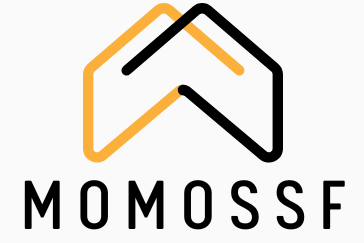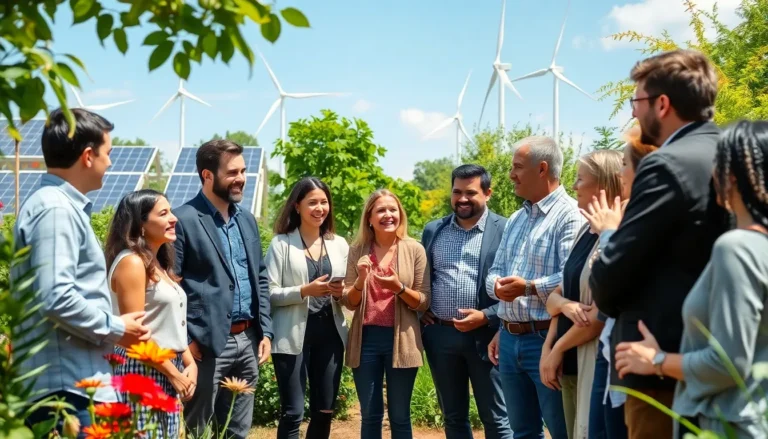Learning a new language can feel like diving into a pool of words with no life raft in sight. For beginners, vocabulary often seems like a mountain of jargon waiting to trip them up. But fear not! Building a solid vocabulary isn’t just about memorizing endless lists; it’s about unlocking the door to communication and connection.
Table of Contents
ToggleUnderstanding Beginner Vocabulary
Building a foundational vocabulary serves as a vital component in learning a new language. It’s not just about memorizing words; effective communication stems from understanding and mastering them.
Definition and Importance
Beginner vocabulary encompasses the essential words and phrases that lay the groundwork for language learning. Mastering beginner vocabulary ensures comprehension of everyday conversations and promotes confidence. By focusing on commonly used terms, learners can engage in basic interactions and express thoughts clearly. This familiarity encourages a smoother transition to complex vocabulary and enhances retention through practical use.
Common Misconceptions
Many assume that vocabulary acquisition solely relies on rote memorization. This belief undermines the importance of context in learning. Learning words in isolation often leads to misunderstandings or difficulties in real-life application. Additionally, some think that vocabulary building is a quick process. It takes time and consistent practice to develop a robust vocabulary. Engaging with diverse materials such as books, conversations, and multimedia can significantly aid in expanding one’s vocabulary effectively.
Key Components of Beginner Vocabulary
Understanding beginner vocabulary includes grasping its essential elements. This knowledge helps learners navigate language acquisition effectively.
Essential Word Lists
Essential word lists serve as a foundation for new language learners. These lists often encompass frequently used words in everyday conversations. Beginners should focus on high-frequency vocabulary, which consists of basic nouns, verbs, adjectives, and adverbs. Examples include items like “house,” “eat,” “happy,” and “quickly.” Focusing on these essential words enhances communication skills, allowing learners to participate in common dialogues. Memorizing terms from these lists simplifies the learning process and builds a solid vocabulary base.
Core Vocabulary Categories
Core vocabulary categories streamline the learning experience. They typically include topics such as food, clothing, colors, and numbers. Each category fosters targeted vocabulary acquisition, making it easier for beginners to remember terms in context. For instance, learning fruit names as part of the food category creates a relatable framework. Engaging with these categories promotes retention and encourages practical usage in conversations. Over time, familiarity with various categories significantly boosts confidence in speaking and comprehension.
Strategies for Building Beginner Vocabulary
Building beginner vocabulary involves employing various strategies that enhance understanding and retention. Beginners can implement effective learning techniques to facilitate vocabulary acquisition.
Effective Learning Techniques
Incorporating spaced repetition aids long-term memory. Repeatedly revisiting words at increasing intervals strengthens recall. Visual aids, such as flashcards, provide a tangible way to associate images with words. Additionally, using words in context through conversations reinforces their meanings. Engaging in daily practice through writing prompts or speaking exercises forms connections that support understanding. Practicing with peers encourages collaborative learning, making vocabulary more relatable and memorable.
Utilizing Resources and Tools
Utilizing language apps like Duolingo and Memrise offers structured vocabulary lessons. These platforms often feature gamification, which increases engagement and motivation. Online dictionaries and thesauruses help expand understanding by providing definitions and synonyms. Furthermore, incorporating children’s books familiarizes beginners with simple language while maintaining interest. YouTube channels dedicated to language learning provide entertaining pedagogical content that reinforces vocabulary within context. Combining these resources creates a rich learning environment that encourages consistent vocabulary growth.
Practical Applications of Beginner Vocabulary
Beginner vocabulary serves essential functions in daily life and academic contexts. Mastery of basic words enhances communication across various situations.
Everyday Conversations
Everyday conversations rely heavily on foundational vocabulary. Core words enhance interactions in informal settings, making it easier to engage with others. Using common nouns, verbs, and adjectives allows individuals to express needs and opinions clearly. Simple phrases facilitate small talk about topics like food, hobbies, and weather. Sharing thoughts becomes efficient with the right vocabulary. For example, discussing favorite meals or commenting on the weather fosters connection. Frequent practice of these elements prepares learners for real-life engagement and builds confidence in speaking.
Academic Settings
Academic settings demand a different approach to vocabulary application. Students encounter specific terminology related to subjects like math, science, or literature. Familiarity with key words aids comprehension of concepts and instructions. Engaging with basic academic vocabulary enables participation in discussions and assignments. For instance, understanding terms like “analyze” or “compare” allows students to follow classroom discussions effectively. Incorporating newly learned words into writing tasks enhances clarity and precision. Consistent exposure to academic language promotes retention and application, supporting overall learning success.
Building a solid foundation in beginner vocabulary is vital for anyone embarking on a language-learning journey. It’s not just about memorizing words; it’s about fostering effective communication and creating meaningful connections. By focusing on high-frequency vocabulary and engaging with diverse materials, learners can enhance their speaking and comprehension skills significantly.
Utilizing effective strategies like spaced repetition and visual aids makes the learning process enjoyable and memorable. Consistent practice in real-life contexts ensures that vocabulary becomes a natural part of everyday interactions. As learners continue to expand their vocabulary, they’ll find themselves more confident and capable in both casual conversations and academic discussions. Embracing these principles lays the groundwork for a successful language-learning experience.






